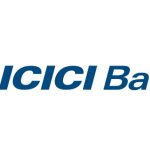Fixed deposits that qualify as “tax-saving FDs” (Fixed Deposits) under Section 80C of the Income Tax Act provide tax advantages to investors. By purchasing tax-saving FDs, investors may deduct up to Rs. 1.5 lakh from their annual taxes. However, interest earned on these FDs is taxable as per the investor’s income tax slab rate. Being that tax-saving FDs have a five-year lock-in term and premature withdrawals are not permitted, it is vital to note that these FDs are not appropriate for investors who need liquidity or who wish to invest for a shorter period of time. However, before investing in tax saving FDs there are some facts which are as follows that investors need to know.
Ashish Misra, Chief Operating Officer- Retail Banking at Fincare SFB
Here are 10 points to keep in mind while investing in tax savings fixed deposits:
2. Look for interest rate offered by different banks before investing. A higher interest rate automatically translates to better returns in the long run.
3. Tax-saving deposit comes with lock-in period of 5 years, so make sure you are comfortable with the term before investing.
4. Investment in tax-saving deposit is eligible for a deduction of up to Rs. 1.5 lakh under Section 80C of the Income Tax Act.
5. The interest earned on tax-saving deposit is taxable. TDS is applicable if the interest earned is more than Rs. 40,000 in a financial year.
6. Check for penalties and charges applicable in case of premature withdrawal of the deposit.
7. Some banks offer a higher interest rate on tax-saving deposits for senior citizens. Check if you are eligible for such benefit.
8. Keep a record of your investments, as the interest earned on tax-saving deposits may not reflect in Form 26AS.
9. You can invest in tax-saving deposits through net banking, mobile banking, or by visiting a bank branch.
10. Understand the terms and conditions well before investing in the tax-saving deposits.
Prateek Toshniwal, Co-Founder of IVY Growth Associates, MI Capital (UAE)
Tax-saving fixed deposits (FDs) are a popular investment option for many individuals looking to save on taxes. However, it is essential to keep a few points in mind before investing in tax-saving fixed deposits. Here are ten things to remember:
1. Interest rates: Compare the interest rates offered by different banks before investing.
2. Lock-in period: Tax-saving FDs come with a lock-in period of five years, so be prepared to keep your funds locked in for that duration.
3. Tax benefits: Tax-saving FDs are eligible for tax benefits under Section 80C of the Income Tax Act. The maximum deduction allowed is Rs. 1.5 lakh per annum.
4. Premature withdrawal: Premature withdrawal is not allowed for tax-saving FDs. So, ensure that you have enough liquidity in other instruments to meet any emergency needs.
5. Interest payout frequency: Interest on tax-saving FDs can be paid out monthly, quarterly, half-yearly, or annually. Choose a payout frequency that suits your cash flow requirements.
6. Penalty for default: Banks may impose a penalty if you fail to pay the deposit on the due date.
7. Nomination: Nominate a beneficiary while investing in tax-saving FDs.
8. Documentation: Ensure that you have all the necessary documents in place while investing in tax-saving FDs.
9. Joint account: You can open a tax-saving FD account jointly with a spouse or family member.
10. Reinvestment option: Consider opting for the reinvestment option to earn compound interest on your investment.
Overall, tax-saving FDs can be an attractive option for those looking to save on taxes while earning fixed returns. However, it is important to consider the above points before investing to ensure that the investment meets your financial goals and requirements.
Source By: livemint













